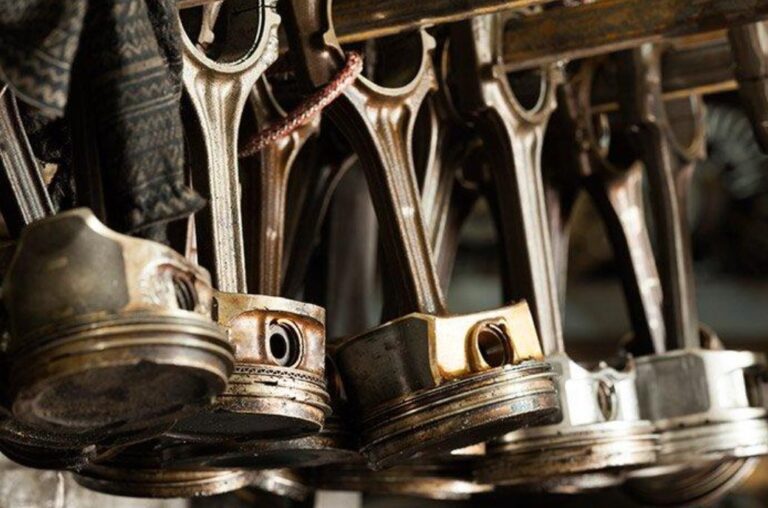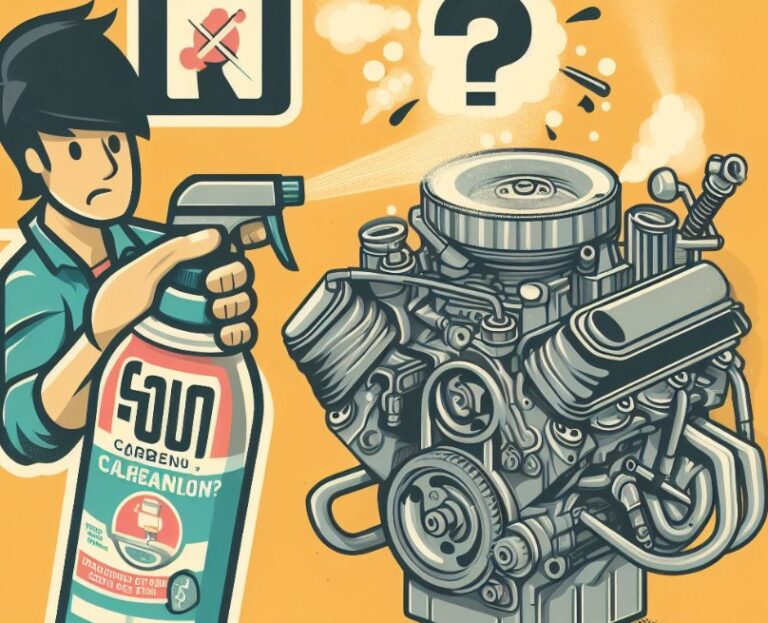Will Engine Run With Broken Head Bolt? Is It Possible?
Understanding the implications of a broken head bolt in an engine is crucial for vehicle maintenance and performance. The question, Will Engine Run With Broken Head Bolt? is a common concern among car owners and mechanics. In essence, a broken head bolt can lead to significant engine problems. It may not immediately stop an engine from running, but it compromises the integrity and functionality of the engine, leading to potential long-term damage.
Key Takeaways
- Running Risk: An engine might run with a broken head bolt, but it risks severe damage.
- Performance Issues: Expect diminished performance and possible overheating.
- Long-Term Damage: Continuing to operate an engine in this condition can lead to costly repairs.
- Inspection and Repair: Immediate inspection and repair are recommended for a broken head bolt.
Will Engine Run With Broken Head Bolt?
Yes, an engine can run with a broken head bolt, but it is likely to experience reduced performance, increased risk of overheating, and potential long-term damage. It is not advisable to run an engine in this condition.

Immediate Effects
When a head bolt breaks, it loses its ability to properly secure the engine’s head to the block. This loss of clamping force can lead to immediate issues like coolant leaks, loss of compression, and engine misfires. While the engine may continue to run, it will likely do so inefficiently, with reduced power and stability.
Potential Risks
The risks of running an engine with a broken head bolt are substantial. Over time, the compromised seal can lead to engine overheating, head gasket failure, and even warping or cracking of the engine head. These problems not only degrade performance but also escalate repair costs significantly.
Impact on Engine Performance
Power Loss and Inefficiency
A broken head bolt affects engine compression, which is essential for proper engine operation. This loss of compression results in a noticeable decrease in engine power and fuel efficiency.
Overheating and Damage
The broken bolt can cause a failure in the seal between the engine head and block, leading to coolant leaks. This, in turn, can cause the engine to overheat, a condition that if left unchecked, can cause extensive damage to the engine.
Detection and Diagnosis

Symptoms and Signs
Identifying a broken head bolt early is key to minimizing damage. Symptoms include overheating, unusual engine noises, and visible coolant leaks. A decrease in engine performance or misfires can also be indicative of this issue.
Professional Assessment
A thorough inspection by a qualified mechanic is essential to confirm the presence of a broken head bolt. They will typically conduct a series of tests, including compression tests and coolant system pressure tests, to diagnose the issue accurately.
Repair and Replacement
Immediate Action
Once a broken head bolt is confirmed, immediate repair is crucial. This typically involves removing the engine head, replacing the broken bolt, and inspecting for additional damage.
Considerations and Costs
The repair process can be complex and costly, especially if additional damage has occurred. It’s important to weigh the cost of repairs against the value and overall condition of the vehicle.
Preventive Measures
Regular Maintenance
Regular engine maintenance and inspections can prevent issues like broken head bolts. This includes timely oil changes, coolant flushes, and monitoring engine performance.
Avoiding Excessive Strain
Avoiding practices that put excessive strain on the engine, such as towing heavy loads or aggressive driving, can also help prevent such issues.
Long-Term Implications
Continuing to operate an engine with a broken head bolt can have dire long-term consequences. Over time, the strain on the engine intensifies, leading to more severe and costly damages.

Escalating Repair Costs
The longer a broken head bolt issue is left unaddressed, the higher the likelihood of incurring substantial repair costs. The damage can extend beyond the head gasket to the engine block and head, which are expensive to repair or replace.
Impact on Engine Life
Consistently running an engine with a broken head bolt significantly shortens its lifespan. The ongoing stress and overheating can lead to irreversible damage, ultimately resulting in complete engine failure.
Mechanical Considerations
When dealing with a broken head bolt, there are several mechanical aspects to consider. These factors play a crucial role in determining the repair approach and its success.
Engine Type and Design
Different engine designs and materials respond differently to the stress of a broken head bolt. For instance, aluminum engine heads are more susceptible to warping under overheating conditions compared to cast iron.
Repair Complexity
The complexity of repairing a broken head bolt varies greatly depending on the engine design. In some cases, it may require extensive disassembly, increasing both labor time and costs.
Environmental Impact
Running an engine with a broken head bolt can have environmental repercussions. The inefficiency and potential leaks pose risks to the environment.

Increased Emissions
A compromised engine often leads to increased exhaust emissions. These emissions can contain harmful pollutants that contribute to environmental degradation and air quality issues.
Coolant Leaks and Contamination
Coolant leaks resulting from a broken head bolt can lead to ground and water contamination. Proper handling and disposal of leaked fluids are essential to minimize environmental impact.
Advanced Diagnostic Techniques
Modern diagnostic techniques can provide a deeper insight into the extent of damage caused by a broken head bolt and guide the repair process.
Use of Technology
Advanced diagnostic tools like computerized engine diagnostics can pinpoint issues with greater accuracy. This technology assists in assessing the engine’s condition and the specific impact of the broken head bolt.
Importance of Accurate Diagnosis
Accurate diagnostics are crucial for effective repair. They help in determining the exact cause of symptoms and ensure that all related issues are addressed during the repair process.
Alternative Solutions
In some cases, alternative solutions might be considered instead of traditional repair methods.
Engine Replacement
If the damage is too extensive, replacing the engine might be more cost-effective than repairing it. This is especially true for older vehicles where the cost of repair outweighs the value of the car.
Aftermarket Products
There are various aftermarket products designed to address issues like a broken head bolt. However, their effectiveness varies, and they should be used with caution and under professional guidance.,
If One Cylinder Head Bolt Breaks, Will It Affect My Engine?
Yes, if one cylinder head bolt breaks, it will affect your engine. Cylinder head bolts are designed to uniformly distribute pressure across the head gasket, ensuring a tight seal between the cylinder head and engine block. When even one bolt breaks, it disrupts this balance, leading to a host of potential problems.

Loss of Compression
A broken head bolt can cause a loss of compression in the affected cylinder. Compression is crucial for the proper ignition of the fuel-air mixture in the engine. Reduced compression results in diminished power output from that cylinder, causing the engine to run unevenly or misfire.
Coolant and Oil Leaks
The head gasket, which lies between the cylinder head and engine block, relies on the pressure from the head bolts to maintain its seal. A broken bolt can lead to leaks in the gasket, causing coolant or oil to leak either externally or into the combustion chamber.
Overheating and Further Damage
Over time, a broken head bolt can lead to engine overheating. This is because the compromised seal between the head and block can allow coolant to leak, reducing the system’s ability to regulate engine temperature. Persistent overheating can cause further damage, such as warping the cylinder head or damaging the engine block.
What Happens If You Don’t Replace Head Bolts?
Failing to replace damaged or worn head bolts can lead to significant engine problems. These bolts are critical components designed to hold the cylinder head securely onto the engine block. Over time, they may stretch, corrode, or even break due to the high-pressure environment within the engine.

Gasket Failure
The primary concern with not replacing head bolts is the potential failure of the head gasket. A weakened bolt cannot apply the necessary clamping force to keep the gasket sealed, leading to leaks and eventual gasket failure. This can result in coolant and oil mixing, reduced engine efficiency, and overheating.
Engine Damage
Continued use of an engine with compromised head bolts can lead to more severe damage. The fluctuating pressures and temperatures can exacerbate the issue, leading to a warped cylinder head, cracked engine block, or complete engine failure, all of which are costly to repair.
What Happens If Your Head Bolts Are Loose?
Loose-head bolts are a significant concern for any engine. The tightness of these bolts is critical for maintaining the integrity of the seal between the cylinder head and the engine block.
Compromised Engine Seal
When head bolts are loose, the seal between the cylinder head and the engine block is compromised. This can lead to leaks in the head gasket, which will affect engine performance. The gasket may fail to keep coolant and oil separate, leading to contamination of both fluids.
Reduced Engine Performance
Loose head bolts can lead to decreased engine performance. The uneven pressure distribution can cause a loss of compression in the engine cylinders, resulting in reduced power and efficiency. This might manifest as rough idling, reduced acceleration, or higher fuel consumption.
Risk of Overheating
Without the proper clamping force provided by the head bolts, the engine is at a higher risk of overheating. Overheating can cause additional damage to the engine, such as warping the cylinder head or damaging internal components.
Conclusion
In conclusion, while an engine might run with a broken head bolt, doing so is risky and can lead to significant damage. Immediate professional assessment and repair are crucial to prevent further issues. Regular maintenance and careful operation of the vehicle are key to avoiding such problems in the future.
Frequently Asked Questions
What are the long-term risks of ignoring a broken head bolt?
Ignoring a broken head bolt can lead to significant long-term risks, including major engine damage such as a cracked engine block or head, a blown head gasket, and severe overheating. These issues can lead to a complete engine failure, requiring expensive repairs or even an engine replacement.
Are aftermarket products effective for fixing a broken head bolt?
The effectiveness of aftermarket products for fixing a broken head bolt varies. Some products may provide a temporary fix, but they are not a substitute for a proper mechanical repair. It’s always best to consult with a professional mechanic before using such products.
What materials are engine head bolts made from?
Engine head bolts are typically made from high-strength materials such as steel or alloys. Some high-performance engines may use bolts made from titanium or other specialized materials for added strength and durability.
Can a broken head bolt be prevented?
Preventing a broken head bolt involves regular engine maintenance, including timely oil changes and coolant flushes. Avoiding putting excessive strain on the engine, like towing heavy loads or aggressive driving, can also reduce the risk of a bolt breaking.
How much does it cost to fix a broken head bolt?
The cost of fixing a broken head bolt can vary widely, depending on the extent of the damage and the type of vehicle. It can range from a few hundred dollars to several thousand, especially if there’s additional damage like a warped engine head or a blown head gasket.

Welcome to the exhilarating world of Matt Rex, a professional car racer turned renowned vehicle enthusiast. Immerse yourself in his captivating blog as he shares heart-pounding adventures, expert reviews, and valuable insights on cars, trucks, jets, and more. Fuel your passion for speed and discover the beauty of vehicles through Matt’s engaging stories and meticulous expertise. Join the ever-growing community of enthusiasts who find inspiration and expert advice in Matt Rex’s blog—a digital hub where the thrill of speed meets the pursuit of knowledge.







